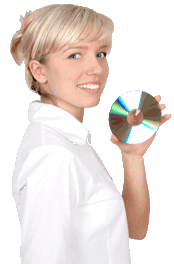Software infringement refers to the illegal copying, sale or distribution of a given piece of patented software. It is a form of interference with intellectual property rights. Since most software is patented, software infringement is generally a violation of patent law.
Intellectual property is protected by a series of different laws and legal concepts. Original works of authorship such as art and music that serve an entertainment purpose only are protected under copyright. Identifying marks that represent a brand are protected under trademark. Functional ideas or inventions, such as software, are protected under patents.

A patent gives the creator of the given intellectual property — the functional idea or invention — the exclusive right to make, distribute, license or profit from that product. The purpose is to protect the creator's interest in profiting from his hard work in developing the product. Since a piece of software or other patented property isn't necessarily a tangible item, which means someone could make a copy of the item without taking the original copy from the creator, the patent prohibits anyone from using the same concepts or formula to create the item without permission.
Microsoft software, for example, is patented. This is necessary because otherwise someone could make millions of copies of a Microsoft Windows CD and sell those to others for much less than Microsoft charges for its product. Although Microsoft would still have its original discs it produced containing the software, it would suffer a financial loss and be unable to benefit from the creation of its product as a result of the malicious behavior.
When someone violates a patent by making or distributing software illegally, software infringement occurs. The owner of the patent can then file a lawsuit to sue for the damages he sustained as a result of the infringement. The patent owner can also get an injunction, which is a court order to stop the infringing behavior.
Software infringement refers only to unauthorized sales and copies. If a person buys a copy of a software program, decides he does not like it, uninstalls it and sells the original copies of the disc, that does not constitute software infringement since the manufacturer was paid for the software item and no theft or unauthorized copying or distribution took place. On the other hand, if the individual allowed others to download the software from his computer or made copies of the discs and distributed them, this would be an example of software infringement.
